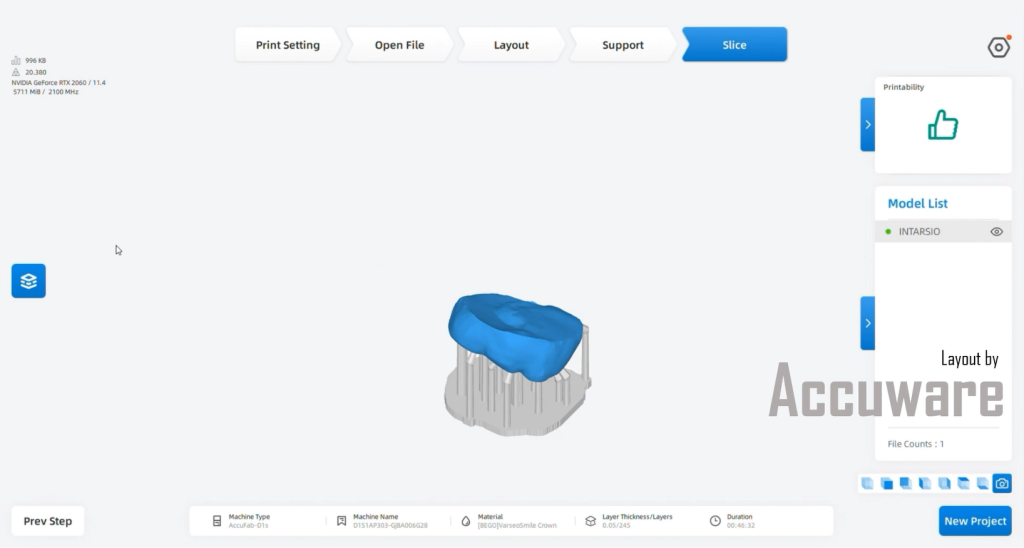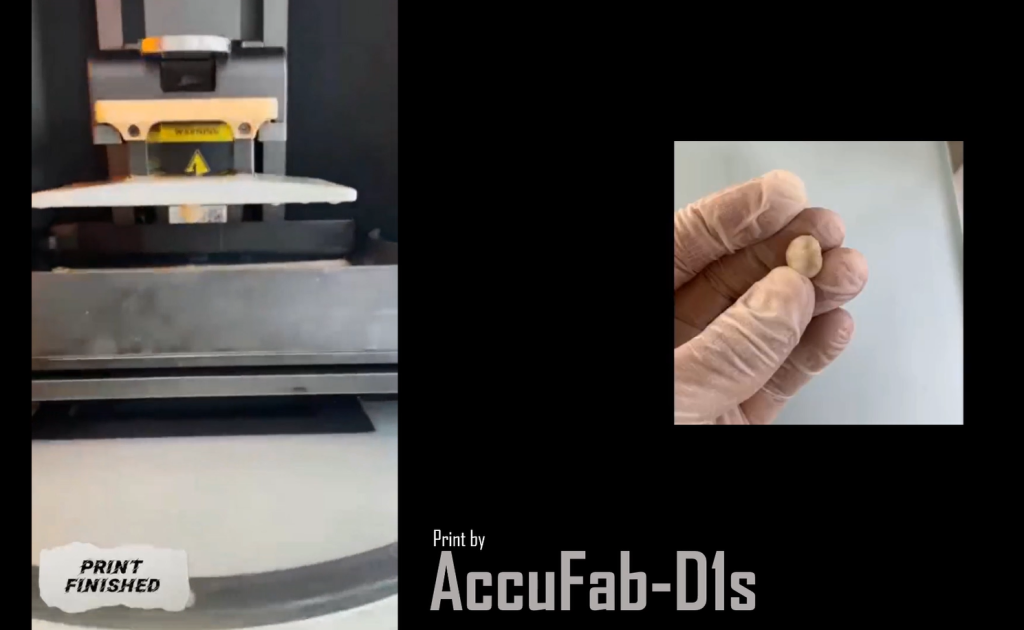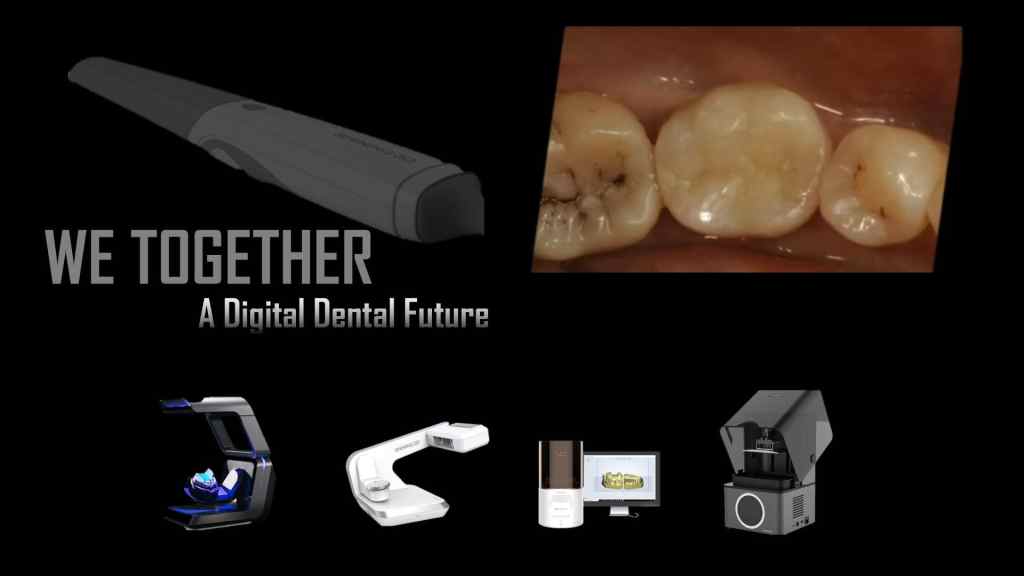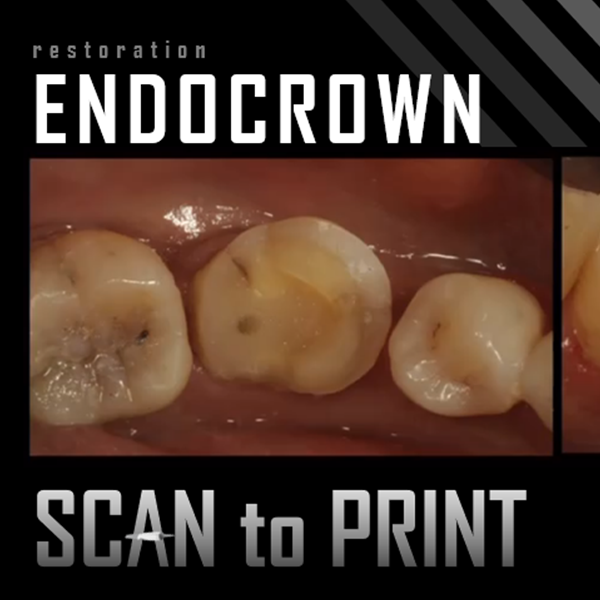Today we would like to present to you an endocrown restoration case. This case was provided by the University of Milan. The dentist employed digital technologies covering the entire spectrum from planning to restoration, from 3d scanning to 3d printing. These technologies have streamlined the restoration process for both the patient and the dentist, making it easier, more effective, and more comfortable.
By using the intraoral scanner Aoralscan 3, the dentist can obtain complete scan data within one minute. The scanning workflow is straightforward, as the software is intuitive and will guide the operator step by step to complete an accurate scan. The scan data is characterized by vivid colors, high accuracy, and fine details. Even with such a short scanning time, the undercut and margin line can be detected.

After scanning, the dentist used exocad to design the restoration.

Once the design is completed, the dentist performed a pre-print processing on the restoration design in the Accuware software. First the dentist imported the design into Accuware, then the position was arranged, and the support was added. Finally, the dentist did the slicing — breaking the file into printable sections — and a usable file was generated.

The completed file can be sent to the printer — in this case, an AccuFab-D1s — via USB, Ethernet or Wi-Fi. Once the printing starts, the build platform descends slowly into the liquid resin, and the restoration part is printed layer by layer. It takes around 44 minutes to print the endocrown. After printing is done, the part can be removed from the build platform for post-processing. This typically involves removing the “support” structures at the base of the design and tidying up the print. Once this is complete, the 3D printed part can be used in clinic.

SHINING 3D’s product suite can make the digital diagnosis and treatment smooth and more efficient for both patients and dentists. We are excited by these technologies and what the mean for effective, time-efficient dental treatments into the future.

 ENG
ENG









